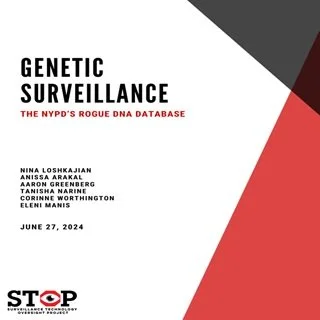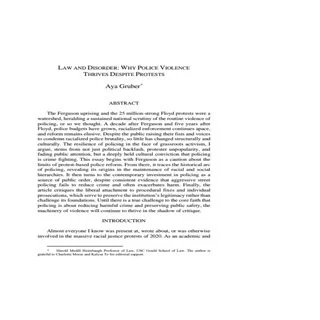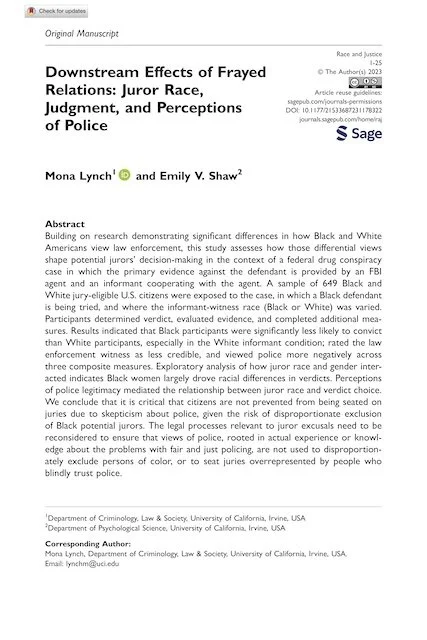By Daniel S. Harawa
The saying goes, when life gives you lemons, make lemonade. When it comes to the Supreme Court’s criminal jurisprudence and its relationship to racial (in)equity, progressive scholars often focus on the tartness of the lemons. In particular, they have studied how the Court often ignores race in its criminal decisions, a move that in turn reifies a racially subordinating criminalization system.
However, the Court has recently issued a series of decisions addressing racism in the criminal legal system: Buck v. Davis, Peña-Rodriguez v. Colorado, Timbs v. Indiana, Flowers v. Mississippi, and Ramos v. Louisiana. On their face, the cases teach that history matters. Government actors who discriminate must be held to account. Accepted institutional practices can no longer perpetuate racism. And courts must assume an active role in addressing the racism endemic to the criminal legal system. At least tonally, these cases are a marked shift for the notoriously post-racial Roberts Court.
But if you dig a little deeper, it is clear that the cases have severe shortcomings. The cases reflect that the Court acknowledges only the most egregious examples of racism, and it fails to see the invidious ways race taints the criminal legal system. The cases also demonstrate the Court’s failure to connect past racial practices with present racial disparities, a failure that in turn paints a false picture of discontinuity of the past from the present. When viewed critically, these seemingly race-aware cases fall neatly in line with the post-racial critiques of the Roberts Court. From a racial justice perspective, the cases could be viewed as lemons.
Even so, this Article attempts to make lemonade. The Article shifts the narrative about the Court’s criminal jurisprudence by arguing that these recent cases can be helpful tools in the fight for racial justice. This Article asserts that the cases can be deployed not only to make specific antiracist legal arguments, but also to push for policy changes and to encourage more open discussions about racism in the criminal legal system. In the end, the Article urges a reclaiming of the case law to help unwind the corrosive relationship between race, crime, and punishment in America. This intervention is necessary now, for the millions of Black and Brown people shuffled through the system each year.
California Law Review, Article Volume 110 June 2022








